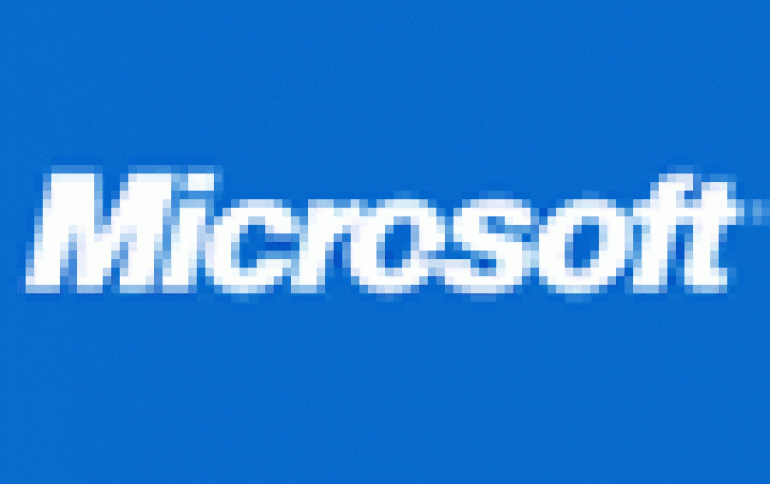
Microsoft Launches MSN Research Labs to Battle Google
Microsoft has launched new MSN research labs aimed at rapidly developing and deploying Internet technologies. These efforts are part of the company's strategy to be more agile in its creation of Web-based services to compete with rivals such as Google and Yahoo.
Microsoft introduced the two research labs -- Live Labs and Search Labs -- on Wednesday, at its Search Champs meeting in Redmond, Washington.
Live Labs will be a group effort of researchers located around the world focused on applied research of technologies such as multimedia search, distributed computing and data mining. The main goal of Live Labs is to get prototypes and new products developed as quickly as possible if the research reveals they will advantage the company or customers in a competitive point of view. It will fall under the jurisdiction of Gary Flake, a Microsoft Technical fellow who joined the company from Yahoo in June 2005.
Search Labs will focus exclusively on developing and incubating new search technologies in areas such as personalization and socialization, improved user experience and user privacy, among others. It will be run by Ashok Chandra, an industry researcher and academic who joined Microsoft a few weeks ago.
Microsoft will invest about $6 billion this year in research and development, companywide, said Adam Sohn, MSN's director of global sales and marketing. And the vast majority is spent on developers' and program managers' salaries.
Microsoft is currently battling Internet service companies such as Google and Yahoo to win over online users with Web-based content and services that can be accessed by myriad devices. These services generate ad revenue and other revenue opportunities through deals with major content providers.
In the past month only, Google in particular has been rapidly introducing new Internet-based services, with a host of new offerings such as Google Video, Google Pack as well as the first launch of its search service in China. As for MSN, Microsof wants to speed up the development and deployment of innovative services on the Web concerning the development of Internet-based services.
While Google and Yahoo both started as Internet-based companies, Microsoft comes from a tradition of packaged software, which is by its nature a slower business than the Web. Even in that area, Microsoft has never been known as a particularly speedy company as it typically has anywhere from two-year to five-year product cycles for its packaged software.
To ensure Live Labs research is in line with company product and strategy goals, a group of Microsoft's chief technologists will serve as the advisory board for the effort.Through Live Labs, Microsoft also is supporting the academic research community at large, Sohn said. The company expects to do much of the labs' work in the open and will present papers on research at academic conferences, he said.
Live Labs will be a group effort of researchers located around the world focused on applied research of technologies such as multimedia search, distributed computing and data mining. The main goal of Live Labs is to get prototypes and new products developed as quickly as possible if the research reveals they will advantage the company or customers in a competitive point of view. It will fall under the jurisdiction of Gary Flake, a Microsoft Technical fellow who joined the company from Yahoo in June 2005.
Search Labs will focus exclusively on developing and incubating new search technologies in areas such as personalization and socialization, improved user experience and user privacy, among others. It will be run by Ashok Chandra, an industry researcher and academic who joined Microsoft a few weeks ago.
Microsoft will invest about $6 billion this year in research and development, companywide, said Adam Sohn, MSN's director of global sales and marketing. And the vast majority is spent on developers' and program managers' salaries.
Microsoft is currently battling Internet service companies such as Google and Yahoo to win over online users with Web-based content and services that can be accessed by myriad devices. These services generate ad revenue and other revenue opportunities through deals with major content providers.
In the past month only, Google in particular has been rapidly introducing new Internet-based services, with a host of new offerings such as Google Video, Google Pack as well as the first launch of its search service in China. As for MSN, Microsof wants to speed up the development and deployment of innovative services on the Web concerning the development of Internet-based services.
While Google and Yahoo both started as Internet-based companies, Microsoft comes from a tradition of packaged software, which is by its nature a slower business than the Web. Even in that area, Microsoft has never been known as a particularly speedy company as it typically has anywhere from two-year to five-year product cycles for its packaged software.
To ensure Live Labs research is in line with company product and strategy goals, a group of Microsoft's chief technologists will serve as the advisory board for the effort.Through Live Labs, Microsoft also is supporting the academic research community at large, Sohn said. The company expects to do much of the labs' work in the open and will present papers on research at academic conferences, he said.





















